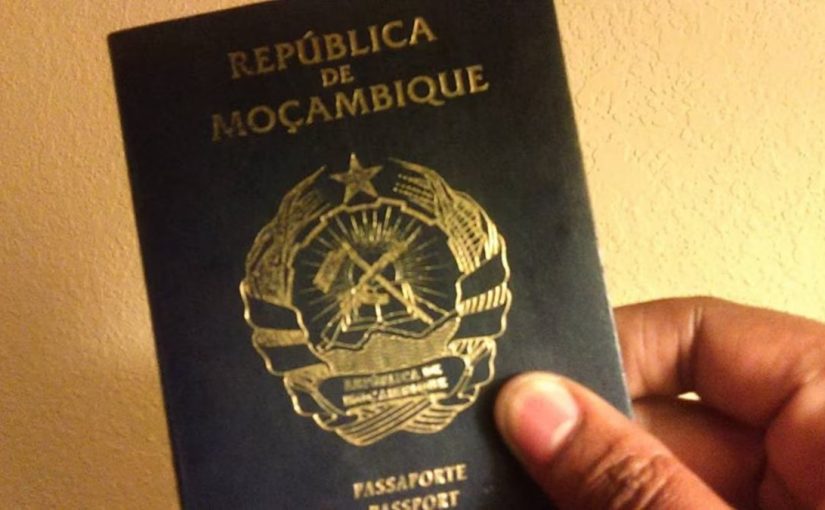Minister highlights Mozambique's Reform and Sustainability Agenda at Africa Diplomatic Tourism and ...
Mozambique, Angola, Guinea-Bissau travellers now required to apply for visas to visit Brazil

File photo: VOA
The Brazilian government is adopting measures to prevent the country being used as a springboard to the United States and Canada.
According to a new package of measures taken by the executive in Brasília, citizens of Angola, Mozambique and Guinea-Bissau will have to apply for a visa to enter Brazil starting Monday August 26 in order to prevent migrants from various continents using their territory to reach, mainly, the United States and Canada.
In total, 60 countries are covered, most of them Asian and African, but Cuba, Iran and Haiti are also on the list.
Citizens of another 60 countries can stay for a maximum of 30, 60 or 90 days, depending on their country of origin, without being required to have a visa. This group includes citizens of South Africa, the United States, Canada and several European and Latin American countries.
In the case of asylum applications, the National Secretary for Justice, Jean Uema, said that asylum seekers will have to prove that they are being persecuted in their country of origin in order to be authorised to enter Brazil.
The measures which came into effect on Monday are being taken amid allegations that Brazil has been used as a human trafficking route by criminal organisations.
A report by the Federal Police concluded that the majority of immigrants who request asylum in Brazil do not have justification for refugee status.
The document showed that more than 70% of the requests for asylum made at the airport come from people of Indian, Nepalese or Vietnamese nationality. Somalia, Cameroon, Ghana and Ethiopia are among the remaining 30% of asylum applicants.
Also according to the report, the majority of migrants who enter Brazil then continue on to the state of Acre, cross the border into Peru and then continue through Central America until reaching the United States and Canada.
Who needs a visa?
- See below the countries that require a visa for a simple visit to Brazil, according to updated information from Itamaraty.
- Afghanistan
- Saudi Arabia
- Algeria
- Angola
- Bhutan
- Cambodia
- Kazakhstan
- Chad
- China
- Comoros
- Congo, Republic of the
- Congo, Democratic Republic of
- North Korea
- Ivory Coast
- Cuba
- Djibouti
- Egypt
- Equatorial Guinea
- Eritrea
- Gabon
- Gambia
- Ghana
- Guinea
- Guinea-Bissau
- Haiti
- India
- Iraq
- Iran
- Jordan
- Laos
- Lesotho
- Liberia
- Libya
- Madagascar
- Malawi
- Maldives
- Mali
- Morocco
- Mauritania
- Mozambique
- Nepal
- Niger
- Nigeria
- Oman
- Pakistan
- Kenya
- Kyrgyzstan
- Rwanda
- Senegal
- Sierra Leone
- Somalia
- Sri Lanka
- Sudan
- South Sudan
- Taiwan
- Tanzania
- Togo
- Uganda
- Uzbekistan
- Vanuatu
- Vietnam
- Yemen
- Zambia
- Zimbabwe
Exemptions
People from the countries below can stay in Brazil for up to 30 days without a visa. Then, depending on each case, they need specific visas:
- Kazakhstan
- Indonesia
- Singapore
- For the countries below, the visa exemption lasts 60 days:
- Dominican Republic
- Venezuela
- And these can stay up to 90 days in Brazil without a visa:
- Albania
- Andorra
- Antigua and Barbuda
- Argentina
- Armenia
- Australia
- Austria
- Bahamas
- Barbados
- Belarus
- Belgium
- Belize
- Bolivia
- Bosnia
- Botswana
- Bulgaria
- Canada
- Chile
- Cyprus
- Colombia
- South Korea
- Costa Rica
- Croatia
- Denmark
- Dominica
- El Salvador
- Ecuador
- Estonia
- Fiji, Islands
- Finland
- France
- Germany
- Grenada
- Greece
- Guatemala
- Guyana
- Honduras
- Hong Kong
- Hungary
- Ireland
- Iceland
- Israel
- Italy
- Jamaica
- Japan
- Latvia
- Lithuania
- Luxembourg
- Macao
- Macedonia
- Malaysia
- Mexico
- Moldova
- Monaco
- Mongolia
- Montenegro
- Namibia
- Nicaragua
- Norway
- New Zealand
- Netherlands
- Panama
- Paraguay
- Peru
- Philippines
- Poland
- Portugal
- United Kingdom
- Romania
- Russia
- San Marino
- Saint Lucia
- Saint Kitts and Nevis
- Saint Vincent and the Grenadines
- Seychelles
- Slovakia
- Slovenia
- Sovereign Military Order of Malta
- South Africa
- Spain
- Sweden
- Switzerland
- Thailand
- Trinidad and Tobago
- Türkiye
- United Arab Emirates
- United States
- Ukraine
- Uruguay
- Vatican












Leave a Reply
Be the First to Comment!
You must be logged in to post a comment.
You must be logged in to post a comment.